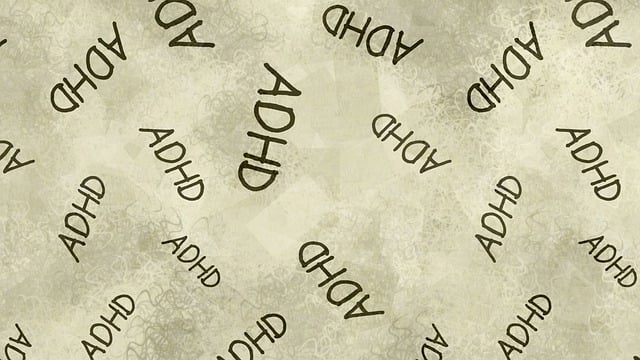Castle Rock Gender Identity Therapy (CRGIT) prioritizes community understanding and inclusivity in its approach. Through a gap analysis, CRGIT identifies unmet needs and cultural barriers, tailoring interventions for emotional resilience among residents. Their strategy involves active listening, diverse communication channels, crisis support, and self-care guidance. Measuring success focuses on improved mental health and self-esteem, with continuous evaluation and partnerships across local organizations to drive sustainable change in inclusive community care.
Community outreach programs play a pivotal role in expanding access to mental health services, particularly for marginalized communities. This article explores the strategic implementation of such programs through a unique lens—Castle Rock Gender Identity Therapy. We’ll delve into understanding community needs, designing inclusive strategies, operationalizing support services, and measuring success. By examining these key components, we aim to enhance the impact of Castle Rock Gender Identity Therapy initiatives and foster a more inclusive society.
- Understanding Community Needs: Identifying Gaps and Goals for Castle Rock Gender Identity Therapy Programs
- Designing Inclusive Outreach Strategies: Creating Effective Communication and Engagement Plans
- Implementing Support Services: Operationalizing Resources and Activities for Maximum Impact
- Measuring Success and Community Collaboration: Evaluating Outcomes and Building Sustainable Partnerships
Understanding Community Needs: Identifying Gaps and Goals for Castle Rock Gender Identity Therapy Programs

Understanding the unique needs of Castle Rock’s diverse community is paramount when implementing gender identity therapy programs. Effective outreach begins with meticulous gap analysis to identify areas where existing services fall short in addressing the specific emotional and social challenges faced by individuals within this demographic. By assessing cultural, economic, and social barriers, the Community Outreach Program Implementation can tailor interventions that resonate deeply with those seeking support.
The process involves active listening and inclusive dialogue to gather insights from community members themselves. This grassroots approach ensures that communication strategies are sensitive and relevant. Furthermore, focusing on emotional regulation techniques tailored to gender identity issues empowers individuals to navigate life’s challenges more effectively, fostering resilience within the Castle Rock community.
Designing Inclusive Outreach Strategies: Creating Effective Communication and Engagement Plans

When designing outreach strategies for community programs like Castle Rock Gender Identity Therapy, it’s crucial to prioritize inclusivity and effective communication. This involves tailoring messages and approaches that resonate with diverse populations, including those facing gender identity challenges or other mental health struggles. A successful strategy begins with understanding the cultural sensitivities within the community, ensuring services are accessible and welcoming to all.
Engaging the community requires a multi-faceted plan. This includes leveraging various communication channels like social media, local events, and partnerships with community organizations. Incorporating Crisis Intervention Guidance can help in providing immediate support and directing individuals towards appropriate resources. Additionally, promoting Self-Care Routine Development as part of the outreach can empower community members to take charge of their mental health, fostering a sense of agency and well-being.
Implementing Support Services: Operationalizing Resources and Activities for Maximum Impact

Implementing effective community outreach programs requires strategic operationalization of resources and activities to achieve maximum impact. For instance, organizations like Castle Rock Gender Identity Therapy can play a pivotal role by offering specialized services tailored to diverse communities’ unique needs. This involves not just providing access to therapy but also integrating educational workshops, support groups, and crisis intervention guidance aimed at enhancing mental health and self-esteem improvement.
A robust Mental Health Policy Analysis and Advocacy strategy is essential to ensure these initiatives are aligned with broader community goals. By fostering collaboration with local governments, healthcare providers, and community leaders, Castle Rock Gender Identity Therapy can help navigate complex systems and policy landscapes. This collaborative approach ensures that resources are allocated efficiently, reaching those who need them most, ultimately fostering a healthier and more inclusive community environment.
Measuring Success and Community Collaboration: Evaluating Outcomes and Building Sustainable Partnerships

Measuring success is a vital component of any community outreach program. At Castle Rock Gender Identity Therapy, we understand that quantifying impact goes beyond mere numbers. It involves assessing improvements in key areas such as self-esteem improvement and mental health stability among participants. By implementing robust evaluation frameworks, we can track progress and identify areas for refinement. This data-driven approach ensures our programs consistently meet and exceed expectations.
Community collaboration is the backbone of sustainable change. We foster strong partnerships with local organizations, schools, and government agencies to create a network of support. These collaborations facilitate crisis intervention guidance and ensure that individuals receive comprehensive care tailored to their unique needs. Together, we can build inclusive spaces where everyone feels valued and empowered, ultimately fostering positive outcomes for our communities.
The implementation of community outreach programs for Castle Rock Gender Identity Therapy is a multifaceted process that requires understanding local needs, designing inclusive strategies, and effectively leveraging resources. By identifying gaps and setting achievable goals, these programs can create significant impact. Through innovative communication plans, engaging activities, and robust support services, the community can be empowered to foster inclusivity and acceptance. Regular evaluation and collaboration ensure sustained success, ultimately enhancing the lives of individuals within the Castle Rock Gender Identity Therapy service area.














